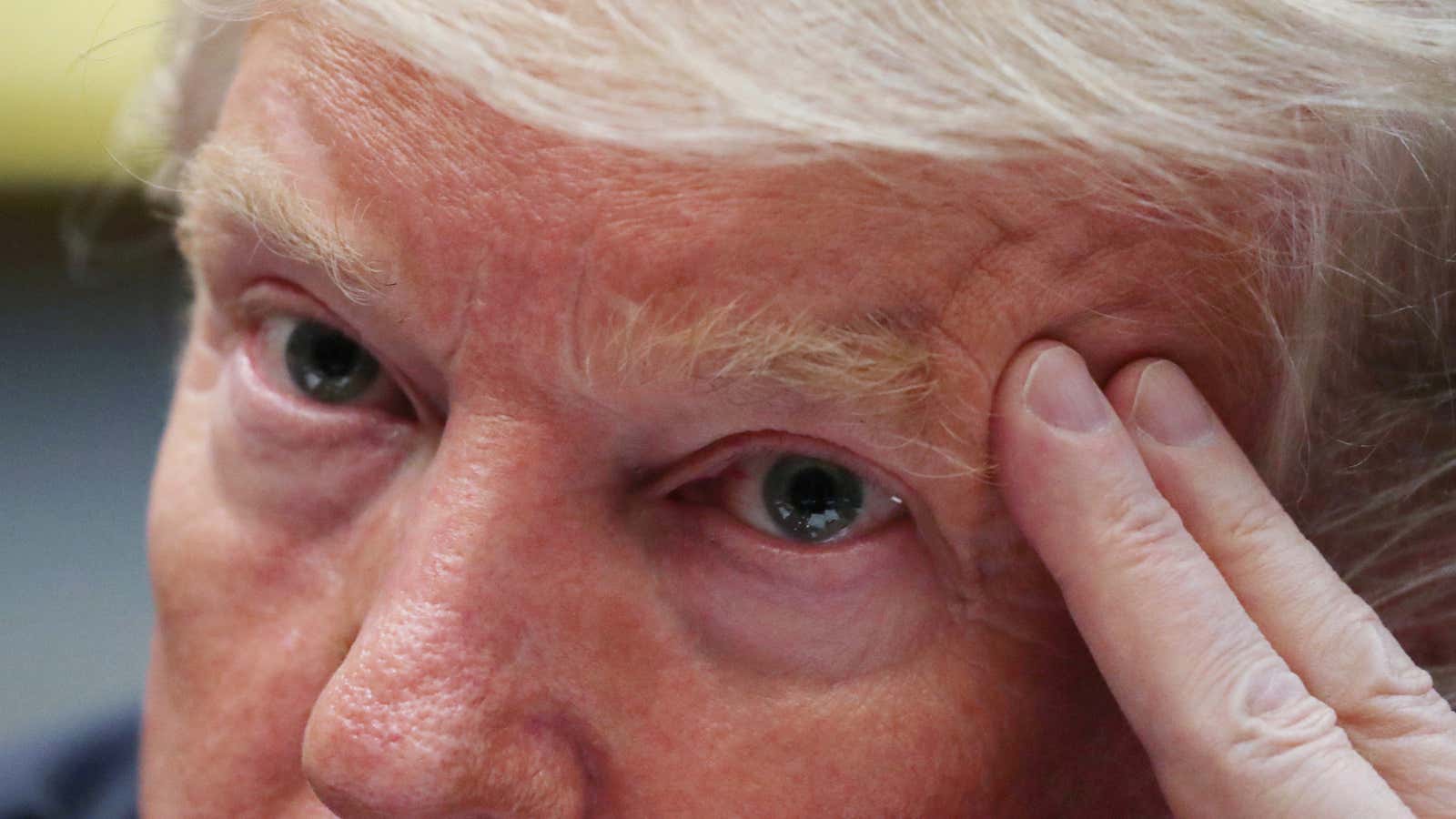US president Donald Trump, also known on Twitter as @realDonaldTrump, has been blocking followers whose tweets displease him. Now, a federal appeals court has affirmed that this violates the US Constitution’s First Amendment free speech protections.
The decision by the Second Circuit Court of Appeals (pdf) affirms a lower court ruling that Trump appealed. The lower court had ruled for the plaintiffs—Republicans and Democrats who were blocked by Donald Trump. It found that the president’s use of his personal Twitter account to discuss government business rendered his tweets official. By blocking followers who criticize him, the president made it difficult for them to engage in online conversation about his proclamations. Today, the appeals court agreed, writing:
A blocked account is prevented from viewing any of the President’s tweets, replying to those tweets, retweeting them, or liking them. Replying, retweeting, and liking are all expressive conduct that blocking inhibits. Replying and retweeting are messages that a user broadcasts, and, as such, undeniably are speech. Liking a tweet conveys approval or acknowledgment of a tweet and is therefore a symbolic message with expressive content…President Trump is only one of thousands of recipients of the messages the Individual Plaintiffs seek to communicate. While he is certainly not required to listen, once he opens up the interactive features of his account to the public at large he is not entitled to censor selected users because they express views with which he disagrees.
The appeals court concluded that the president “violated the First Amendment when he used the blocking function to exclude the Individual Plaintiffs because of their disfavored speech.” But it was careful to point out that it was addressing this particular context, and that government officials with private accounts that aren’t used for a public purpose aren’t included in this assessment. It is Trump’s inclination to engage with the public in his capacity as president that renders blocking unconstitutional in this context.
Although Trump’s attorneys argued that the plaintiffs could use various workarounds to see what he said on Twitter, these efforts burdened the plaintiffs’ free speech, according to the Second Circuit decision. Ultimately, the president’s legal team didn’t succeed in convincing the court that blocking was no big deal. It only provided the Second Circuit with an opportunity to remind the president and the public of the reasoning behind the First Amendment.
The court noted that it was ironic to be writing about the government muffling free speech in a time of unprecedented public debate covering an “extraordinarily broad range of ideas and viewpoints” and reaching “a level of passion and intensity the likes of which have rarely been seen.” The First Amendment exists to protect precisely this debate.
“This debate, as uncomfortable and as unpleasant as it frequently may be, is nonetheless a good thing,” the opinion concludes. “In resolving this appeal, we remind the litigants and the public that if the First Amendment means anything, it means that the best response to disfavored speech on matters of public concern is more speech, not less.”
Technically, what that means is that the president can no longer block followers whose comments displease him and that the plaintiffs who brought the case will need to be unblocked. The Knight First Amendment Institute, which represented the plaintiffs, has throughout the litigation continually urged those who have been blocked by Trump to contact it for help righting the wrong at the email address [email protected].
